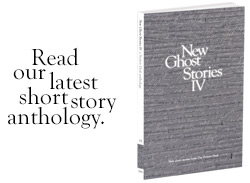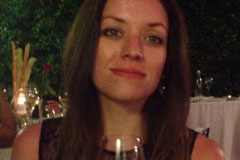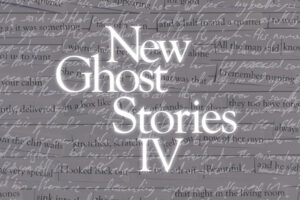 Of the many different sorts of shark that operate in the freelance editing business (and more specifically, the critiquing business), one of the more uninspiring varieties is the critique copy-and-paster. When you get a critique from one of these guys, what you actually receive is a collection of barely personalised pieces of generic advice, copy-and-pasted from their database. They pick whatever seems to fit the bill, and slap it in. It’s the equivalent of modern customer service emails, where you get a barely-relevant, generic reply. Only, of course, you pay a lot more for the critique.
Of the many different sorts of shark that operate in the freelance editing business (and more specifically, the critiquing business), one of the more uninspiring varieties is the critique copy-and-paster. When you get a critique from one of these guys, what you actually receive is a collection of barely personalised pieces of generic advice, copy-and-pasted from their database. They pick whatever seems to fit the bill, and slap it in. It’s the equivalent of modern customer service emails, where you get a barely-relevant, generic reply. Only, of course, you pay a lot more for the critique.
Now, it’s true that the same problems do come up again and again when you’re critiquing manuscripts, but the trick is for the editor to address those problems in a way that’s particularly relevant to you. They should use actual examples of where you’ve gone wrong, make specific suggestions as to how to fix those mistakes, and try to think about how you can build what you’re learning into your overall growth as a writer.
Still, I thought it might be useful to list some of the more common mistakes I’ve seen writers make. So here’s your very own copy-and-paste critique. For free.
- Too much backstory
Your novel should start when your story starts. If you find yourself using lots of space to tell us what’s happened before, you’re in trouble. Try cutting out all the backstory, and just let the background information be implied by the situation, the events, and the interaction between characters. If that doesn’t get across the information you want to share, consider that you may actually be telling the wrong story.
- No actual story
While your characters may be interesting, and the setting original, something still needs to happen. Remember that a novel needs a story. (Or, as E. M. Forster put it in his book, Aspects of the Novel, “Yes, oh dear yes, the novel tells a story.”) I promise that it’s not unsophisticated to have something happen in your book. It’s essential: the story is the driving force of a novel. (And there’s no such thing as a character-driven novel, at least not directly. All good novels are story-driven, and all good stories are character-driven, but you do need that central part—the story—to turn a character into a novel.)
- Show, don’t tell
This is partially related to the comment about backstory: If the right information isn’t coming across through the way your characters relate to each other, and the events that unfold, maybe it isn’t relevant to the book at all. This doesn’t mean you have to show absolutely every detail instead of telling it, but you do have to strike the right balance. If the things you tell aren’t essential to what’s happening right now, don’t tell them at all. If they are, how can you show them through the way the story unfolds?
- Don’t repeat yourself
Either on a structural level, by giving the same information twice, or on a sentence level. And never write “I’m sorry,” he apologised.
- Stilted dialogue
Do your characters all talk as though they’re attending a stiff, formal function? Do people keep reminding each other of their backstories and telling each other things that they already know? Do their speeches tend to start on one page, and finish on another? Then you have stilted dialogue. Consult a professional at once, or just cut it down and make it sound more realistic.
- Your characters all speak with the same voice
Take some lines of dialogue from your story, cut the surrounding text, and show them to a friend. Ask the friend what kind of person is speaking. If he thinks your eight-year-old boy is a grandfather, your hairy tramp is a youthful banker, or your exhausted mother is a toddler, you need to address the way your characters speak.
- Problems with word usage
If you’re not 100% sure that you use every word in the right way, you need to get a good dictionary. I generally recommend that Brits get the Oxford Dictionary of English, which is bigger than the Concise dictionary and, importantly, contains plenty of examples of word usage within the definitions. There’s also an American equivalent, the New Oxford American Dictionary.
If you are 100% sure that you hit every nail on the head, you’re wrong, so see the advice above. And if you’re 110% sure that your word usage is always perfect, get a dictionary and look up “percentage”.
- This isn’t a novel
If you want to write your autobiography, write your autobiography. If you want to write a novel, do that. Of course you can base a novel on your life experiences, but remember that a novel is a work of fiction, and everything contained within it must be in the service of the story. That means you have to be comfortable making any changes necessary to make the story work as a story. If the story would be better if you killed off Uncle Ed, but you can’t do that because your Uncle Ted is still alive, you’re not writing a novel.
- This isn’t a book
If your novel opens by panning across the scenery, then moves on to a series of fight scenes described blow-by-blow, and if things happen mostly for the way they would look rather than for the ideas behind them, then you’re probably writing a screenplay in prose. Write the screenplay instead, and you’ll be a lot happier.












September 3rd, 2008 at 8:51 am
its Wednesday around 5:47pm for me, and my little red light has gone off on my phone, WRITING! it says. one of the biggest problems I have with writing and finishing my torrential Novel is time and persistence. There are times where I have little to no motivation to finish or to start a new body of work.
Some of the best advice I’ve read on writing was seen in a book called ‘reading for writers’.
The thing that makes the book so good is the author takes very small pieces of work by incredible novels, hemmingway, dickens, proust etc, and explains what makes those specific pieces of writing so good.
great stuff, and by the way, really enjoying the site :)
September 3rd, 2008 at 9:08 am
Hi Brad,
Is that the Francine Prose book? You’re right, it is an interesting one. I don’t necessarily agree with her opinions or the conclusions she draws (her comments on Hemingway in particular struck me as missing the point), but the general message of the book—that you can learn to write by reading closely and studying other people’s writing—is a good one, and I’m often surprised by how many writers-in-training haven’t realised the importance of reading.
October 10th, 2008 at 11:30 am
This is great advice.
I wrote a novel and one of the biggest notes I received on early drafts was at times it read more like a screenplay. This made sense as I work in Hollywood.
While they are different mediums, a lot of your advice can apply to both novels and scripts, especially regarding dialogue.
October 10th, 2008 at 11:46 am
Thank you, NYC.
I think a lot of writers make the mistake of being too insular in their approach to their writing. They might only read within their genre, for example, when wider reading could bring them a lot of fresh ideas. Writers of prose can also learn a lot from other media; you can learn a lot about plotting a novel by watching certain episodes of The Simpsons, for example.
I thought David Benioff’s City of Thieves had a strong momentum and a good sense of scene-setting, and I wouldn’t be surprised if this was at least partly down to his experience of writing screenplays, and thinking like a screenwriter.
Of course, there are also the differences between mediums—I’m seeing more writers now who try to write novels that use plot and pacing ideas from computer games, not realising that these work the way they do because they’re interactive.